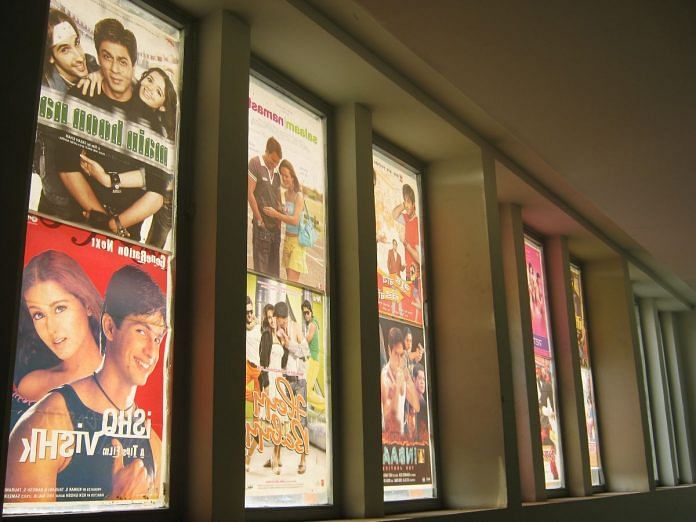
Thank you dear subscribers, we are overwhelmed with your response.
Your Turn is a unique section from ThePrint featuring points of view from its subscribers. If you are a subscriber, have a point of view, please send it to us. If not, do subscribe here: https://theprint.in/subscribe/
There is the talk of town, the era of 90s was of handsome songs and men with ladies taken to fit the ‘love’ part. The story was meant to be driven by the male counterpart and the young lady though drenched under the waterfall, manier times was tasked to roll in the gardens of the valley. That time, as old as it sounds, was overexpressed. The dramatic background sounds appeared as a deterrence within the less realistic scenes. Yes, the projection back then neither justified the part of the lady nor the talent of the male, but it capturing the scenic beauty of the regions along with fitting the slow living yet evergreen songs, made it won several jubilees.
But even today nothing much has altered and the issue of different valued pay-checks remains prevalent. Not so long ago when a movie called – Motichoor Chaknachoor, starring Nawazuddin Siddiqi and Athiya Shetty as the lead, displayed the condition of an aged man named Pushpinder (Nawaz) working in Dubai who comes all the way down to his homeland in the eagerness of getting a life partner, gets trapped by the city girl (Athiya) who dreams of settling abroad. Though somewhere in the middle, when Pusphinder overhears the selfish conversation of his wife and mother, finalising the plan in order to convince him according to their needs, in utter anger he ‘slaps’ his wife. Though the mother was lending dirty advice and tricks and the wife was too selfish and greedy but her ending up bearing a red mark on the face, can never be justified.
To add to this scene, the song – ‘Choti Choti Gal’ kills the whole idea of slap being a big issue. ‘Je main manaava mann vi jaaya kar’ (if I try to console you, you try to be normal), the utterly misogynistic scenes and therefore justification with such lyrical songs, makes the advancement of 21st century numb. Though the male character was kind enough and the female character was cunning too, hitting someone was never an option both in the books and in law. His mother too was standing close, did he dare hit her? These things better not reach the younger generation, where in their hormonal anger they end up hitting the partner and in order to make things normal they’ll depend on such songs.
But the 2012 English Vinglish by Gauri Shinde, starring Sridevi as the lead, still syncs with the reality of today. Not so long ago when the foreign channels started reviewing the Indian contents, a channel named – ‘Our Stupid Reaction’, the reactors from the United States of America gave their opinions about the movie. They were convinced enough by the notion that ‘Shashi should have gone with the French guy instead of her husband.’ Though the ending didn’t sync with the world of States, it was well fitted in the air of India. Moving out of toxic and disrespecting marriages after having children seems a Sisyphean Task even today. Unfortunately, the ending never got questioned up until the west made us rethink.
The Filmfare 2023 was staged on 27h April, met with a lot of opinions of it being snubbed from awarding the true-blue pictures of Indian cinema. The Kashmir Files, though nominated under various categories, wasn’t able to feel the warmth of the award. Neither the picturization nor the performances fall short in representing the Hindu genocide of Kashmir, still it met with a cold feet. Though Anupam Kher was nominated under the best actor category, the Badhaai Do starrer Rajkumar Rao won the race. Neither the matter is about winning nor about losing, it’s about recognising the oddities faced by the humans through the medium of cinema. If the film like Mulk can win the recognition, then why The Kashmir Files is falling short of it. Filmfare is in need of a bonafide faculty of individuals in order to give space to the real cinema. Due to such incidents, the Filmfare never saw the same depth as the Oscars.
Cinema is a tool for impacting society. A single picture, a million viewers and humongous validation from all over the world. When the nursery rhymes from ‘Kis ka bhai kisi ki jaan’ hits the theatre, the idea of finding meaning in today’s cinema seems an impossible idea to fetch.
These pieces are being published as they have been received – they have not been edited/fact-checked by ThePrint.

COMMENTS